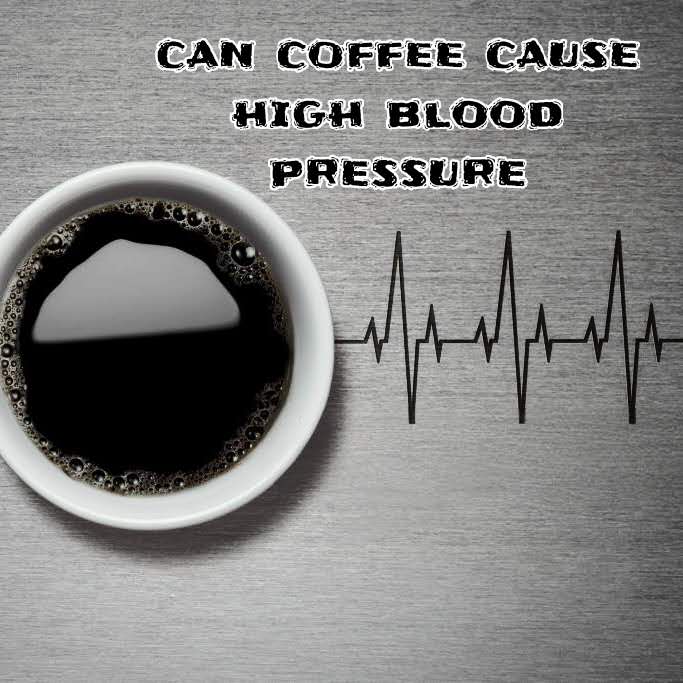Table of Contents
Introduction
From espresso shots in Italy to pour over brew in Japan, coffee is considered a universal ritual that fuels the comfort and productivity of the person who consumes it. Whether it is a morning sip or an evening gathering, whether it’s a family event or a friends’ get together, everyone loves to serve and enjoy it.
In short, coffee is considered one of the most famous and lovable beverages all over the world. But there are some common queries that are always circulating in every coffee consumer’s mind, which are about the effect of coffee on health. Can coffee cause high blood pressure? It is one of the most irritating questions that propagates in every coffee lover’s mind.
In this article, we are going to explore all this query and discuss all the parameters that are related to, can coffee cause high blood pressure…
What is blood pressure
So, we started exploration of our query, can coffee cause high blood pressure? from understanding the basics of blood pressure. The force that pushes blood to circulate from veins and heart walls is called blood pressure this pressure is created when the heart is pumping.
According to the AHA (American Heart Association), 120/80 mmHg is considered normal BP. Above that limit, high BP diagnosis starts. High BP can cause kidney disease and brain strokes and most importantly, it increases the chances of heart disease, which might be a heart attack or some other heart problem.
Can coffee cause high blood pressure
The answer to this question is not as simple as YES or NO. In order to resolve this query, we have to go deep down and explore this question from the basics. So, the basics are that it starts from a substance that is present inside the coffee that causes an impact on the BP of a person who drinks coffee. And the name of that substance is caffeine.
Caffeine is a natural ingredient that is present in energy drinks, tea, chocolate and many other things. Also in coffee, caffeine is present but in low amounts. The primary purpose of caffeine is to slow down the releasing of adenosine. The adenosine is considered a neuromodulator, which increases tiredness and sleep drive. Caffeine works as an opponent of adenosine, making your central nervous system more active, improving focus and increasing alertness. But as caffeine blocks the adenosine, it increases the release of adrenaline. Adrenaline is also a neurotransmitter hormone that triggers the heart to beat faster, which results in a rise in blood pressure. This is the basics of how can coffee cause high blood pressure.
Short term effect of coffee on blood pressure
For a healthy adult body, this rise of blood pressure starts from 30 to 60 minutes and lasts up to 2 to 3 hours. After that, the liver usually metabolizes the caffeine and the blood pressure level returns to normal.
Long term effect of coffee on blood pressure
According to the studies, consuming coffee on a regular basis can cause chronic high BP, which is also called hypertension but with metabolism dependency. In 2022, the Journal of the American Heart Association published an analysis in which they mentioned that consuming coffee on a daily basis does not cause any significant risk of hypertension. However, the risk of cardiovascular diseases becomes lower by taking coffee on a daily basis due to coffee’s antioxidant compounds. But as we mentioned, it all depends on metabolism capacity.
I mean, you can consider that the answer to, can coffee cause high blood pressure? is linked with the question of how your body metabolizes caffeine. Usually for an adult body, 2 to 4 cups of coffee (300 to 400 mg of caffeine) is acceptable. But persons may feel a long-lasting increase in BP if they have a slow caffeine metabolism.
Factors that can influence coffee’s effect on the body
After understanding the basics of how can coffee cause high blood pressure, let’s explore further factors that create an impact on the body.
Individual caffeine sensitivity
As we mentioned the relation of caffeine and the human body in previous sections. Let’s discuss in more detail. We know that caffeine impact depends on metabolism activity, which varies from person to person. Some coffee lovers drink coffee daily without feeling any negative effect, while some coffee consumers feel jittery, experience a rise in BP and have a rapid heartbeat. This difference is generated because of a gene called CYP1A2.
This gene is responsible for performing metabolism activity in your body. It is influenced by genetics. People with proper CYP1A2 have fast metabolism and they can easily digest caffeine. But a person with a variation in the CYP1A2 gene can experience problems in caffeine digestion and can feel increased BP.
Age and Gender
It is also an important factor that influences how can coffee cause high blood pressure in a consumer’s body. As we discussed, the average adult body has good metabolism but this is not the same for older adult bodies. Usually older bodies have slow caffeine metabolism, which means they feel jittery, have acidity and have a long lasting rise in BP.
Similarly, the impact of caffeine on gender also varies pregnant women or females who take oral contraceptives have slower caffeine metabolism, which means a rise in BP.
Lifestyle habits and underlying health conditions
Chronic stress leads to the release of cortisol and adrenaline, which helps in the rise in blood pressure. When it is combined with caffeine, it can further amplify the spikes of BP and the person feels increased BP for a long time.
Smoking helps in caffeine metabolism. A person who is addicted to smoking and loves to drink coffee while smoking usually tries to drink a greater amount of coffee or tries to consume coffee with more caffeine to feel the same energy which indirectly increases the level of caffeine intake and risk of BP rise.
Alcohol is very harmful for a human’s liver, if a person is addicted to alcohol and consumes coffee with alcohol, it will not only damage their liver but it is also dangerous for their heart and other body parts.
If a person is suffering from kidney problems, diabetes and anxiety disorder, then consuming coffee may cause serious negative effects. Caffeine can elevate these diseases or can elevate stress hormones.
Types of coffee matter
How can coffee cause high blood pressure? One of the answers is hidden in the types of coffee you are consuming. Every coffee and its brewing type contain a certain amount of caffeine. Some are mentioned below.
| Type of coffee | Approximate caffeine (per 8 oz) |
| 1 shot espresso | 60 to 80 mg |
| Filtered coffee OR Drip brew | 95 to 120 mg |
| Instant coffee | 60 to 90 mg |
| Decaf coffee | 2 to 5 mg |
More brewing coffee means more extraction of caffeine. So, if you want low caffeine coffee, then try to go for limited brew coffee, or, as mentioned in the above table, try to select decaf coffee because of its low caffeine.
Recommended limit of daily caffeine
In this section we are going to explore the last part of our query, can coffee cause high blood pressure? That is, what is the amount of coffee that is suggested by doctors? So, let’s explore what doctors and studies say…
As per the United States Food and Drug Administration (FDA) and the European Food Safety Authority (EFSA), the acceptable limit of caffeine for an average adult body is 400 milligrams. However, for those who are caffeine sensitive or usually suffering from hypertension (high BP), in that case doctors suggest they limit their caffeine intake to up to 200 milligrams.
People who drink coffee that has caffeine under that mentioned limit have not worried about can coffee cause high blood pressure.

